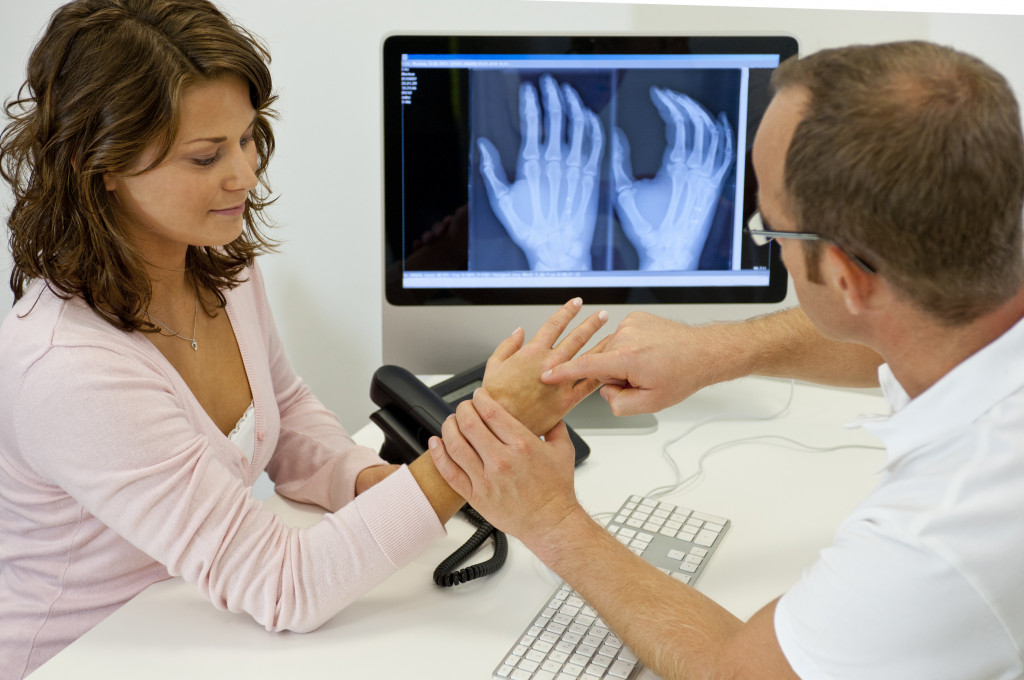After coming back from a well-deserved vacation, the last thing on most people’s minds is going to the medical facility for a check-up. However, it’s important to remember that your bodies can be exposed to new germs and illnesses when you travel. So, it’s always good to get a check-up after coming home.
Even if you feel perfectly healthy, it’s always better to err on the side of caution and make sure that you haven’t picked up anything while you were away. Plus, your doctor will be able to give you any needed vaccinations or medications to help prevent any future illnesses. So next time you’re planning a trip, don’t forget to schedule the following check-ups for when you get back:
Physical Check-up
A routine physical check-up can help your doctor assess your overall health and identify potential problems. This routine is essential if you’ve been feeling fatigued or under the weather after returning from your trip.
Although it’s perfectly normal to feel a little jet-lagged after traveling, it could signify something more serious if you’re feeling especially exhausted or sick. In this case, your doctor will likely order some diagnostic tests to check for any underlying infections or illnesses.
Many people don’t realize that some of the most common travel-related illnesses, like diarrhea, can be caused by bacteria or viruses. These infections are easily treatable with antibiotics, but only if they get caught early. So, if you’re not feeling fine after returning from your trip, don’t hesitate to make an appointment with your doctor.
Blood Test
A blood test can help check for any infections or illnesses you may have picked up while away. It can also help identify any allergies you have developed to new foods or substances.
If you’ve been feeling particularly run-down or have any strange symptoms, your doctor may order a complete blood count (CBC). This test will check for anemia, which parasites and other potential problems can cause.
Your doctor may also recommend a blood test to check for malaria in some cases. Although this disease is more common in tropical areas, it’s still important to get tested if you’ve been anywhere where there’s a risk of exposure. Either way, getting a blood test after traveling is always a good idea to ensure that you’re tip-top shape.
Lung Function Test
When you’re experiencing any respiratory problems, like a cough or difficulty breathing, your doctor may want to order a lung function test. This test will help determine any underlying lung damage or infections.
It’s crucial to get this test if you’ve been exposed to any chemicals or pollutants while traveling. For example, if you’ve been diving, your doctor will want to check for any signs of “the bends.” This condition often comes from nitrogen bubbles in the blood and can be fatal if left untreated.
So, if you’ve been feeling short of breath or have any other respiratory problems, tell your doctor right away. They may order a lung function test to check for any potential issues.
X-rays
If your doctor suspects that you may have picked up an infection while traveling, they may order an X-ray. This scan can help identify any issues in the lungs, sinuses, or other body parts. X-rays are also helpful in checking for broken bones or other injuries. They’re often used in emergency rooms to diagnose patients with potential injuries.

If your doctor orders an X-ray, it’s essential to follow their instructions. You may need to remove any jewelry or clothing that could get in the way of the scan. You may also get asked to hold your breath for a few seconds while the X-ray gets taken.
Afterward, the X-ray scan will get sent to a radiologist for interpretation. They will look for any abnormalities and report back to your doctor. If everything looks normal, you can rest assured that you’re in good health.
Ear Test
After coming back from a vacation, one of the things you should do is get your ears checked. Exposure to different environments, like altitude changes, can cause ear pain or damage.
An ear test can help identify any problems you have developed while traveling. Your doctor will likely use a special instrument called an otoscope to look inside your ears. They may also recommend getting an ear microsuction if there is any wax buildup.
A private ear microsuction is a quick and painless way to remove any earwax buildup that may have occurred while you were away. Earwax can cause hearing loss, tinnitus, and vertigo, so it’s essential to get it removed as soon as possible. It is also an effective way to remove any foreign objects that may have become lodged in your ear during your travels. Whether you’ve been on a plane, swimming, or generally outdoors, don’t forget to book an appointment.
These are just a few of the tests and check-ups your doctor may recommend after you’ve been traveling. If you’re feeling under the weather or have any other concerns, don’t hesitate to make an appointment with your doctor. They’ll be able to assess your overall health and make sure that you’re back to one-hundred percent.

